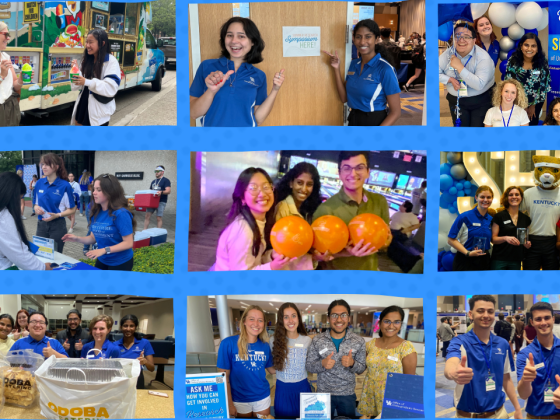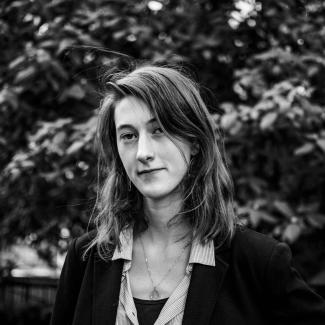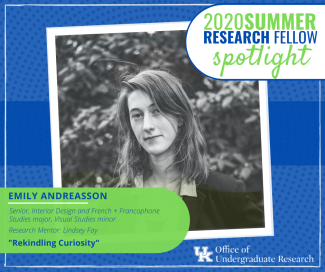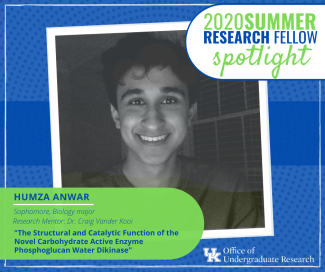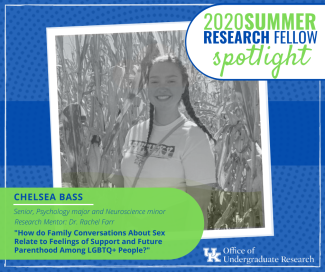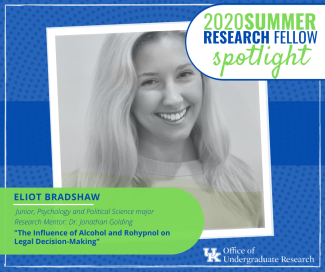Q: How did you first get interested in undergraduate research at UK?
A: "I knew from the start that I wanted to go to grad school, and I learned that being involved in research would help prepare me for that. I also knew that I wanted to conduct my own research at some point because of a study I participated in when I was in high school, so participating in research as an undergrad would help prepare me for that as well."
Q: How long have you been engaged in undergraduate research?
A: "I started in the FAD lab the fall semester of my sophomore year."
Q: Describe what a typical day of remote summer research activity looks like for you. How does this differ from your pre-COVID research activity?
A: "Typically, I will spend time looking through the data set I am working with to create a code book that will be used in my senior thesis project. The only way this differs from pre-COVID is that our team meetings are on Zoom instead of in person."
Q: What has been the most exciting aspect of your research so far?
A: "The most exciting aspect has been creating a research question that I have an interest in and knowing that I am getting a head start on what will become a full fledged, (hopefully) publishable paper by this time next year."
Q: What advice would you give to other UK students thinking about doing research?
A: "Do it! It has helped me become a stronger academic in terms of time management, leadership, creative thinking, and so much more."
